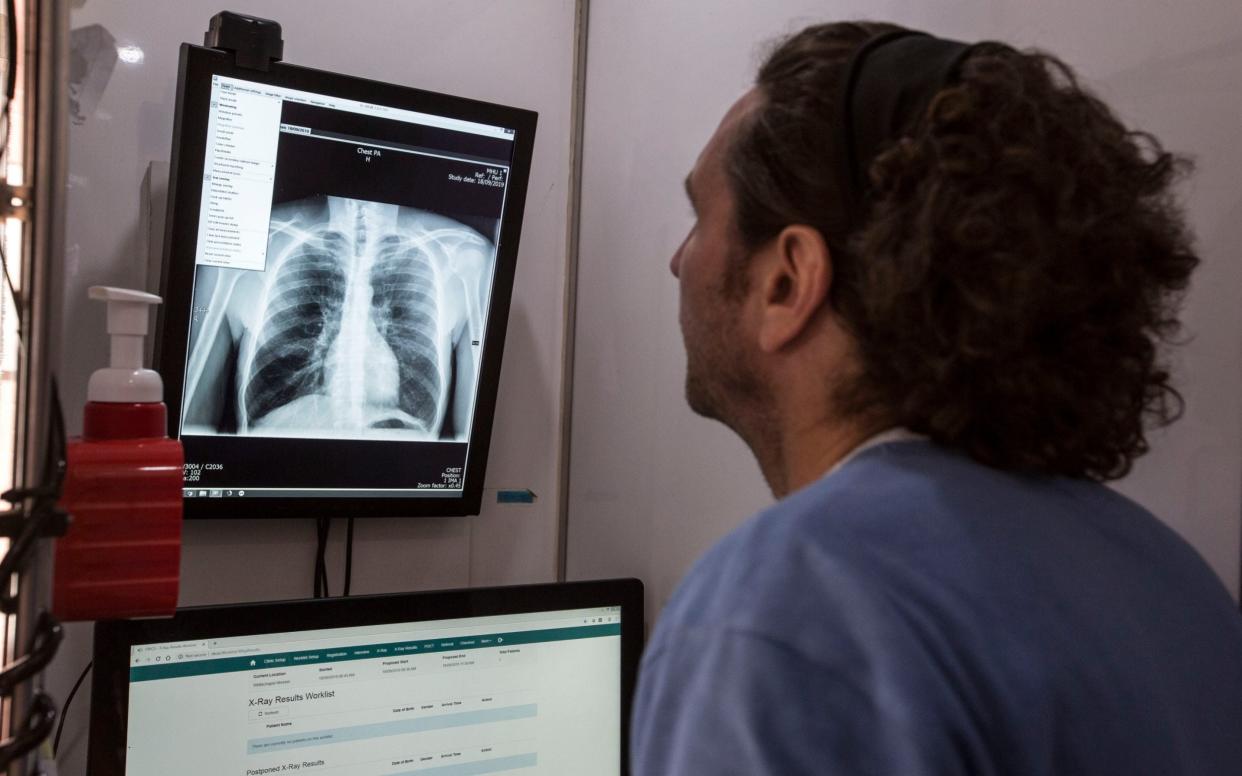Up to $15bn need to control TB as world urged to 'mobilise' against the disease

The world needs to apply the same urgency to tuberculosis as it did to Ebola if it is to wipe out the deadly lung disease, a leading TB expert has said.
At the launch of a global plan setting out how to eliminate the world’s biggest infectious killer TB scientists and campaigners have called for more than $15 billion between now and 2022.
Some $2.6 billion a year is needed for research and development and $13bn is needed for care and treatment of people with the disease, which infected 10million people in 2018 and killed 1.5million - figures that have barely shifted over the last few years. If the plan is fully funded this would mean that 40 million people would get on TB treatment.
Dr Lucica Ditiu, executive director of the Stop TB Partnership which is spearheading the new plan, called for faster development of a new TB vaccine, better diagnostics and the urgent roll-out of new TB drugs.
In October, scientists unveiled the results of a new vaccine that showed it protected half the people who were given it.
“We have a promising vaccine - very good results were announced in October - but we need to invest around half a billion dollars to have that vaccine ready by 2026,” she said, adding there was currently no funding to take the vaccine from early-stage research out into the field.

“When the world mobilises it can achieve things - we had a new vaccine within a year for Ebola,” she said.
Three new treatments have been approved for TB in recent years and last year the World Health Organization changed its treatment guidelines to include the new drugs.
The traditional treatment regimen for TB is long - six months for the standard form of the disease but up to two years for the most complicated multi-drug resistant strain. And the traditional drugs to treat TB have many toxic side effects such as hearing loss, nausea and, in some extreme cases, psychosis.
“Some countries have been slow to push the latest WHO treatment recommendations,” said Dr Ditiu. “If you’ve been using the same drugs for the last 80 years it can be difficult to change to new ones,” she said.
The action plan also calls for increased uptake of new drugs specially formulated for children with the drug-resistant form of the disease. In the past children have had to take unpalatable adult versions of the drugs but new child-friendly treatments need to be urgently rolled out.

TB is a disease of poverty, often affecting the poorest and most marginalised people in the world who have no voice and have not led the charge for new treatments.
To stimulate an activist movement the plan also asks for $2.5million to fund new grassroots, community organisations - similar to grassroots HIV groups which have led effective campaigns for both new drugs and social change.
Dr Ditiu said: “There aren’t enough people who are outraged at not having access to the best TB tools. We need civil society to raise the pressure on governments.”
Funding for the plan is likely to come from donors such as the Global Fund to Fight Aids, TB and Malaria, as well as the countries most affected.

Dr Ditiu added that since last year’s high level meeting on TB at the United Nations - where world leaders came together to pledge action - there had been a lot more focus on the disease in the countries with the highest rates.
India and Indonesia are both starting to reap the rewards of investing in battling TB. In both countries detection of the disease - vital to getting people on treatment - has improved dramatically over recent years, the latest figures show.
Dr Paula Fujiwara, scientific director of the International Union against TB and Lung Diseases, called on countries to speed up their response to TB.
“Investing in TB is not just a sound public health policy, but also a sound economic investment. The plan shows that if you invest $1, you get a $44 return—it’s a win-win for governments, for TB affected communities and for the world,” she said.
Protect yourself and your family by learning more about Global Health Security

 Yahoo News
Yahoo News 
